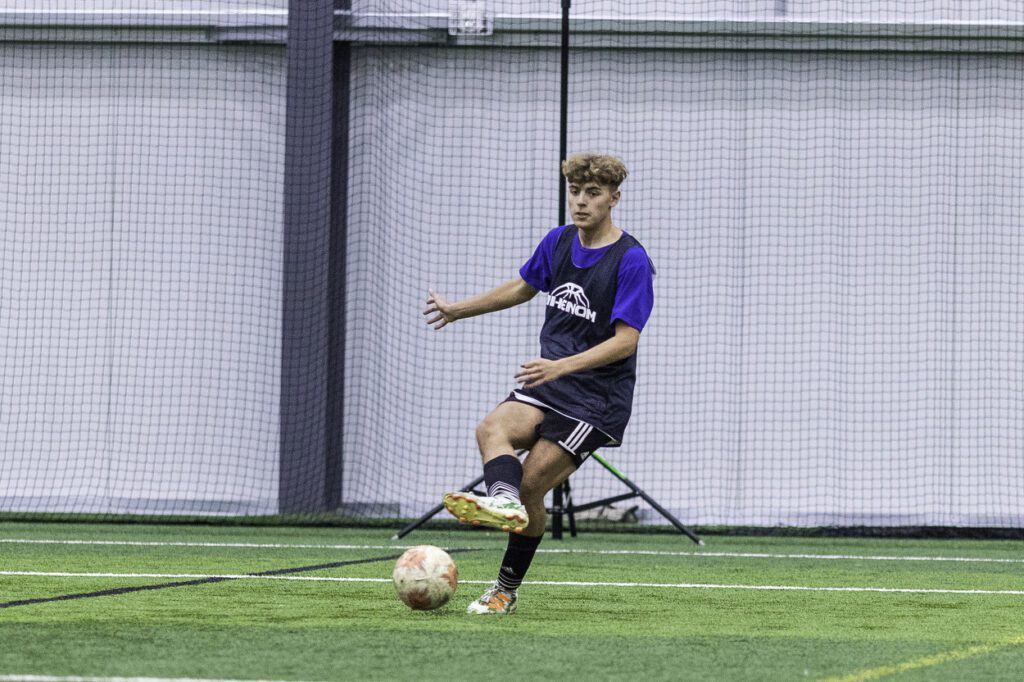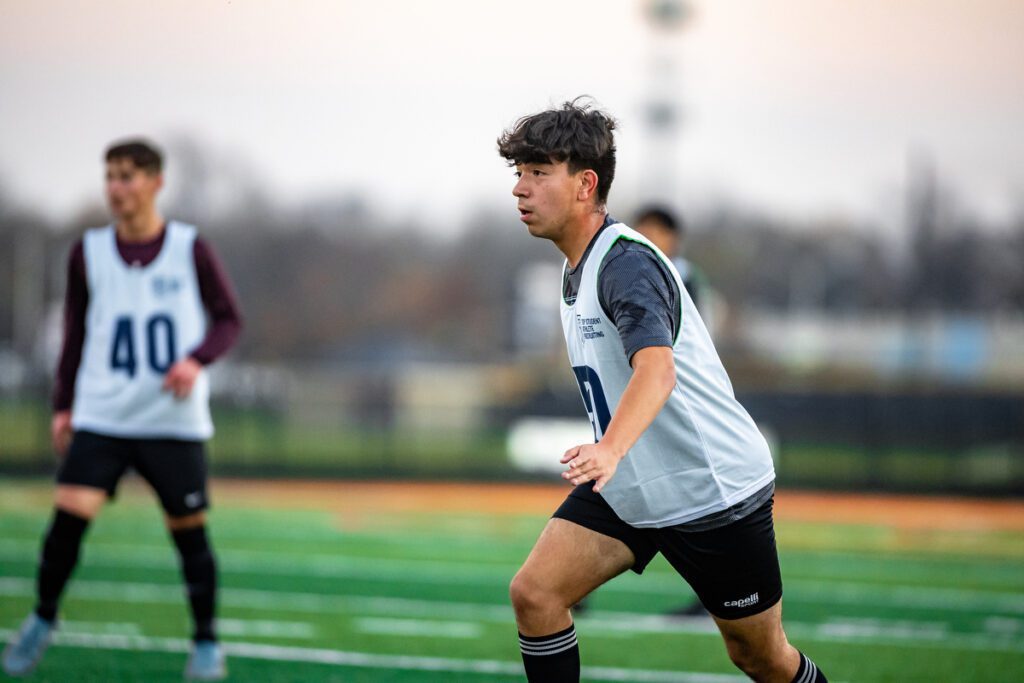Parents are very important to the college recruiting process. In order to maximize your child’s chances of playing in college, you need to understand the role you play in your child’s college recruitment. For this reason, I have detailed the different responsibilities parents have below. I realize every case is different, but with years of experience, this is my best advice.
Parents’ Responsibilities During The Recruiting Process
Provide Support and Advice: The recruiting process can be very demanding and difficult for kids. They are only in high school and “don’t know what they don’t know”. Your main role as a parent is simply to continue what you’ve been doing your entire life: being there for your child and helping them through their struggles – both academically and athletically. This can include helping them get to games, meetings with college coaches and schools, and working with them to get video for recruiting profiles.
Utilize TSA Recruiting and all your other resources too: As a parent, you are a tremendously important resource to your child. When they come to you and you don’t know the answer, have them reach out to me, or you can reach out to me. I want to be utilized. You have paid to work with me to help reduce the stress of this process. Please, please, please reach out to me when you have a question or need some advice. I am happy to take emails, texts, phone calls, or even set up a Zoom check-in. I do this with the kids but am happy to do it with parents too. Also, if your child has coaches (club or high school) and school counselors that can be a resource in this process, the more people in your child’s corner, the better.
Represent Your Child Well: College coaches, while obviously primarily focused on the recruit, care about getting to know the family as well. It is often said that colleges don’t just recruit athletes; they recruit families. For this reason, you must make sure to represent your child in the best possible manner. Coaches want to see families and parents that are supportive, encouraging, and kind. They prefer parents who are clearly invested in their child’s success but also actively encourage independence because they believe recruits who grow up in this style of family are very coachable and great to have in the locker room.
The parent’s role in the college recruiting process is basically a balancing act. On one hand, you have to let your child take the lead and encourage independence, but on the other hand, you must give them support and advice to guide them through the process. This can include helping them to leverage the resources they have as a high school student-athlete and have productive conversations with college coaches. Again, this is a big reason you have me in your corner.

Common Mistakes Parents Make
Oftentimes, parents overstep their role in the recruiting process. While they mean well, this can turn college coaches away from recruits. In order to help prevent this from happening to you, I explain a couple of the most common mistakes parents make during the recruiting process.
Don’t Try To Take Charge Of The Recruiting Process: While parents should get involved in their child’s recruiting process, they should limit this involvement to ensure that their child’s personality comes through. Coaches want to get to know the parents of potential recruits, but their priority is to get to know the recruits themselves. Overbearing parents can both frustrate their child during the process and turn away college coaches.
However, there are areas where it makes sense for parents to take the lead, like financial aid. Asking questions about the aid your child will receive is perfectly acceptable since you are financially responsible for their education. (Remember when it comes down to financial aid time, I am here to help you get the best package possible. Don’t accept the first offer without talking to me.) Helpful nudges along the way can help too. (That’s why using me can help – one of the first families I helped, I asked why they were using me – they admitted to “saving our parent-child relationship”). It’s important that there is communication back and forth with me and your child. Please ask them regularly if they are keeping in touch with me and if they are logging communications with college coaches in their profile – this helps me help them.
Don’t Forget The Goal Of College Is To Get An Education: When considering colleges, families often get caught up in the school’s prestigious athletic history, fancy weight rooms, and elite coaching staff, making it very easy to ignore the academic side of the equation. However, the harsh reality is that less than 1% of college athletes get the opportunity to play their sport professionally. While recruits should continue to pursue their dream of playing the sport they love professionally, it is your role as a parent to remind them to consider the academic strength of the schools they are considering so that they have a backup career plan.
Parents need to both support their child’s dreams and tether them to reality. While the recruit should be taking the lead in the recruiting process, it is often up to the parents to ask the difficult questions surrounding the school’s financial aid/scholarship packages and academics. Also, like the prospects I work with, I believe parents should have an open mind to this process. Please don’t frown upon a division, a college, or a team based on your preconceived notions. Don’t pre-determine what level you think your kid is or have a D1 OR BUST mentality. Listen to everyone so the best fit comes to fruition. I realize a place may not have a major or play “attractive soccer”, but please don’t pre-judge a college or a program, and at a minimum, it is good practice to talk to everyone.

Accolades and Stats Don’t Matter Much
Awards like being named all-conference or all-state DON’T MATTER in college recruiting. Coaches only care if you can play and if you fit in with their program. They care 0% if your son/daughter is named all-conference, all-state, or MVP. Those awards are nice and good for the ego, but they don’t matter in college recruiting. These awards are relative. All-State in one state might not even be good enough to be all-conference in another area of the country. It is all relative, anyhow. Don’t get me wrong, I had kids that played for me that had a lot of high school accolades, and I also had great players for me that were all-state in high school who rode the bench. I also had others that had zero awards attached to their name that were way better college players than the all-state player.
I’ve never found a system of voting for all-conference that was accurate. The teams I coached were really good too. Our goal was national championships. Many times, I didn’t even play my best players against some teams to rest them if they were dealing with a minor injury. Those opponents could not vote for my player that didn’t play against them in all-conference voting. We didn’t care because it was all about team success at the end of the year. Additionally, what if your son/daughter is a defender and they play against some bad teams? The defender is not going to get tested in some games, and then that opponent won’t even know if they are good or not – so again, they don’t get voted for. Again – coaches only care if the student-athlete can play and how they fit into their program on and off the field.
The same goes for statistics. They are relative based on who you are playing, level of competition, etc. There aren’t many stats in soccer, and they can show facts, but they can also be inflated. I’ve seen players be kept in games long enough against bad teams to get 6 goals, and I have also seen coaches rest players who would “mop up” on bad competition and not play them to rest them, so they don’t get the stats that day.
Soccer is a team sport – the goal of the team is to work together to beat the opponent. I personally think individual accolades and even individual goals are silly in team sports, and way too much emphasis or excitement goes into them. Again, college coaches only care about winning and finding the right players that will help them do that.
Social Media Presence Can Only Hurt
You may disagree, but a social media presence, or lack thereof, has virtually no direct bearing on whether or not your student-athlete succeeds in securing a college roster spot. There is a lot of hype and “noise” on social media. I don’t think tagging or sharing when and where you are going to be playing, that you attended a camp or that you were offered a roster spot has any direct bearing on your recruiting results. I would honestly put my time and energy elsewhere. I truly think social media and posting or “liking” the wrong things can only hurt student-athletes in the process. The rest is just fluff and like accolades – ego-driven but really means nothing. A lot of time is wasted on social media noise. Don’t fall for the trap of social media being important in this process.

